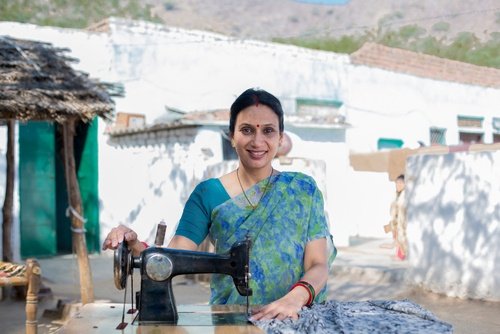India’s villages offer strong potential for small businesses that boost income and livelihoods. With access to finance, resources, and schemes like Pragati, rural entrepreneurs can turn simple ideas into sustainable ventures. Knowing the eligibility criteria for Pragati scheme for rural households helps secure vital financial support to start confidently.
Below is a list of practical small business ideas that work well in Indian villages.
1. Dairy Farming
Dairy is one of the most reliable businesses in villages. Selling milk, paneer, ghee, or curd provides a daily source of income. Families with limited land can still manage a few cattle and build a sustainable business. Cooperative societies often buy milk directly from farmers, ensuring steady buyers for their produce.
2. Poultry Farming
Poultry farming requires modest investment and grows quickly. Eggs and chicken meat have steady demand in both rural and urban areas, making this a profitable choice for many villagers. The cycle of returns is shorter compared to dairy, which helps households earn income faster.
3. Beekeeping
Honey production is becoming popular in rural India. It needs very little space and offers good returns. Along with honey, beeswax can also be sold to earn extra income. Villagers with orchards or farms can combine beekeeping with agriculture, as bees also improve crop pollination.
4. Organic Farming
Urban consumers are demanding chemical-free food. Villagers can grow organic vegetables, fruits, or grains and sell them directly to nearby towns or city markets. This not only improves income but also fetches better prices compared to conventional farming.
5. Kirana Shops
Small general stores supplying essentials like grains, pulses, and toiletries are always in demand. Even a modest kirana shop can create a consistent income in villages. As digital payments grow, such shops can also offer services like mobile recharges and utility bill payments.
6. Mobile Repair and Recharge Centres
With mobile usage increasing across rural India, repair services and recharge centres are profitable ventures. These shops need minimal space and can run with basic training. They also serve as information hubs for villagers who rely on mobile services for daily tasks.
7. Tailoring Services
Affordable tailoring units serve the needs of villagers for daily wear, school uniforms, and festival clothing. Tailoring is a sustainable source of income, especially for women. Many tailors also offer embroidery or custom designs, adding value to their services.
8. Local Transport Services
Auto-rickshaws, tractors, or small vans can be rented out for daily commuting or agricultural purposes. Transport services are essential in villages that connect to nearby towns and markets. With more people travelling for education or work, demand for affordable local transport is rising.
9. Food Processing Units
Villagers can set up small units to grind flour, make spices, or extract oil. This not only creates value for local produce but also attracts steady customers. Packaged products can be sold in nearby towns, further increasing earnings.
10. Handicrafts and Embroidery Work
Women in villages are skilled in crafts such as embroidery, weaving, and bamboo work. These products can be sold in local markets and even online. Such activities are among the most effective village business ideas for women. With training and access to better tools, production can expand significantly.
11. Pickle and Papad Making
Traditional food items like pickles, papads, or homemade snacks have strong demand. Women’s groups often start these as community-based businesses, scaling production over time. These ventures need low capital but provide good seasonal income, particularly during festivals.
12. Beauty Parlours
Setting up small beauty parlours in villages is another strong example of village business ideas for women. Services for weddings and festivals ensure regular income. With some training, women can offer modern grooming services alongside traditional ones.
13. Tuition and Coaching Classes
Educated villagers, especially women, can run tuition classes for school-going children. This helps improve literacy while generating income without large investments. Demand is growing as parents in villages want quality education for their children.
14. Digital Service Centres
Villages increasingly need access to online services. Centres offering internet browsing, government form filling, and digital payment facilities can meet this demand effectively. These centres also help villagers access benefits under government schemes.
15. Solar Product Sales
Frequent power cuts in villages create opportunities to sell solar lamps, cookers, or chargers. This business is practical and responds to an essential need. It also supports sustainable energy use, which is gaining acceptance in rural households.
Role of Finance
While these business ideas are practical, villagers often struggle to access finance. CSR-led initiatives like the Pragati programme by institutions such as L&T Finance offer support through training and livelihood opportunities, especially for women and low-income families. Alongside government-backed microfinance schemes, these efforts enable rural entrepreneurs to secure resources without heavy collateral and start businesses with greater confidence.
Conclusion
Small village business ideas in India blend traditional skills with modern needs. From dairy and tailoring to solar products and digital kiosks, opportunities are vast. Empowering women through handicrafts or tuition strengthens communities. With initiatives like Pragati loan and access to microfinance schemes, villagers can build sustainable and secure livelihoods.

